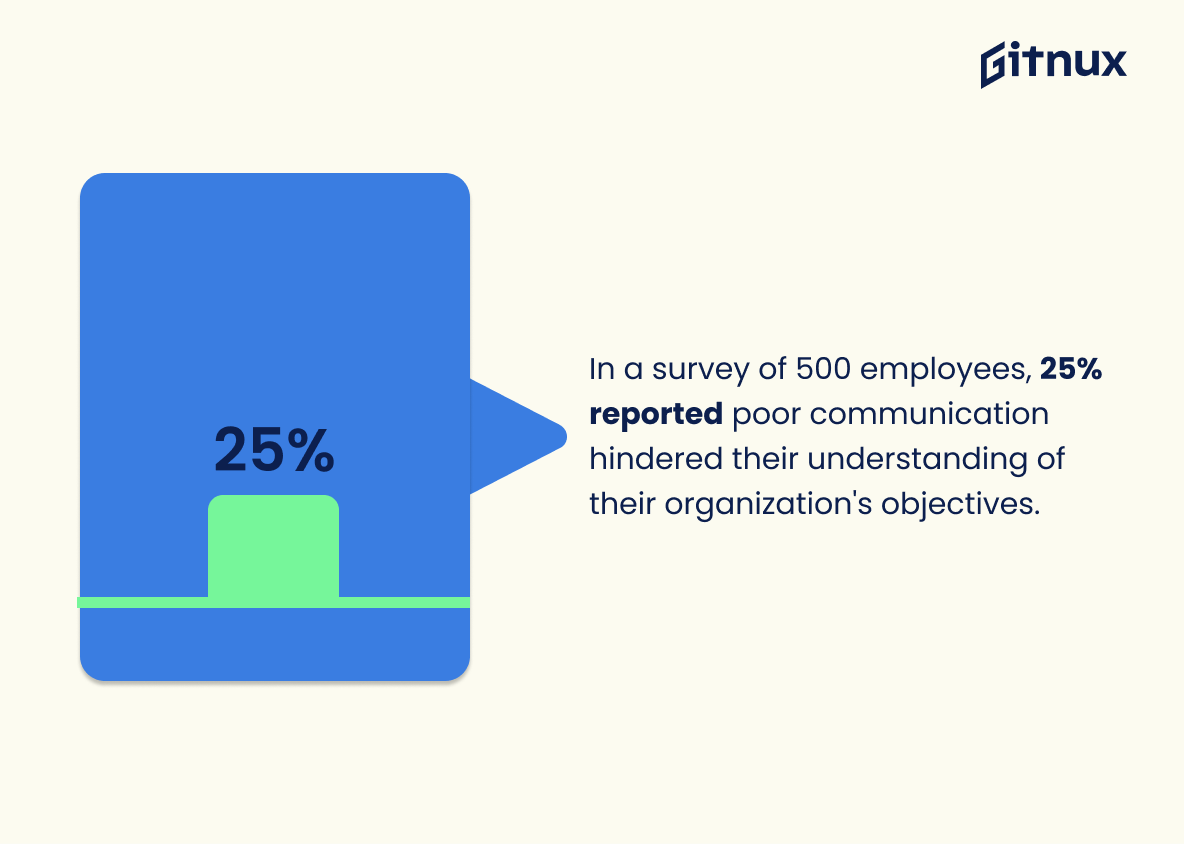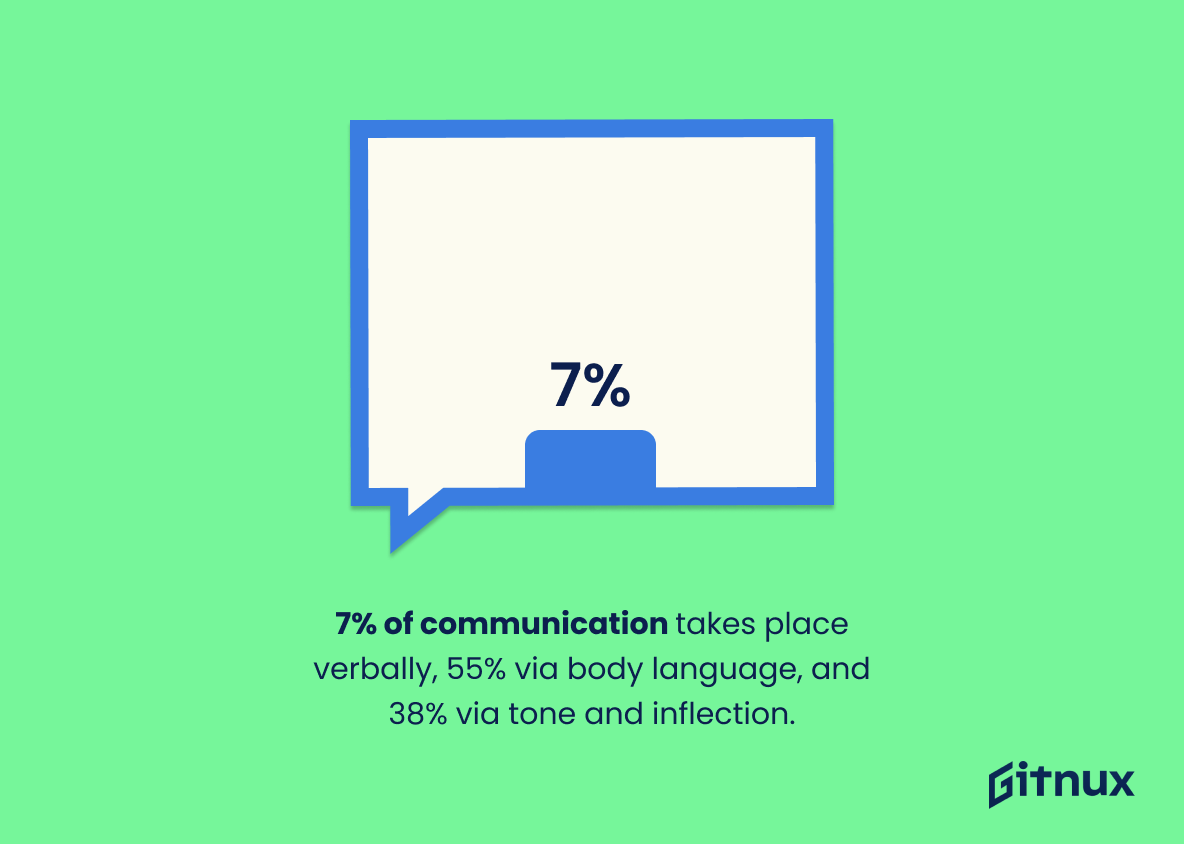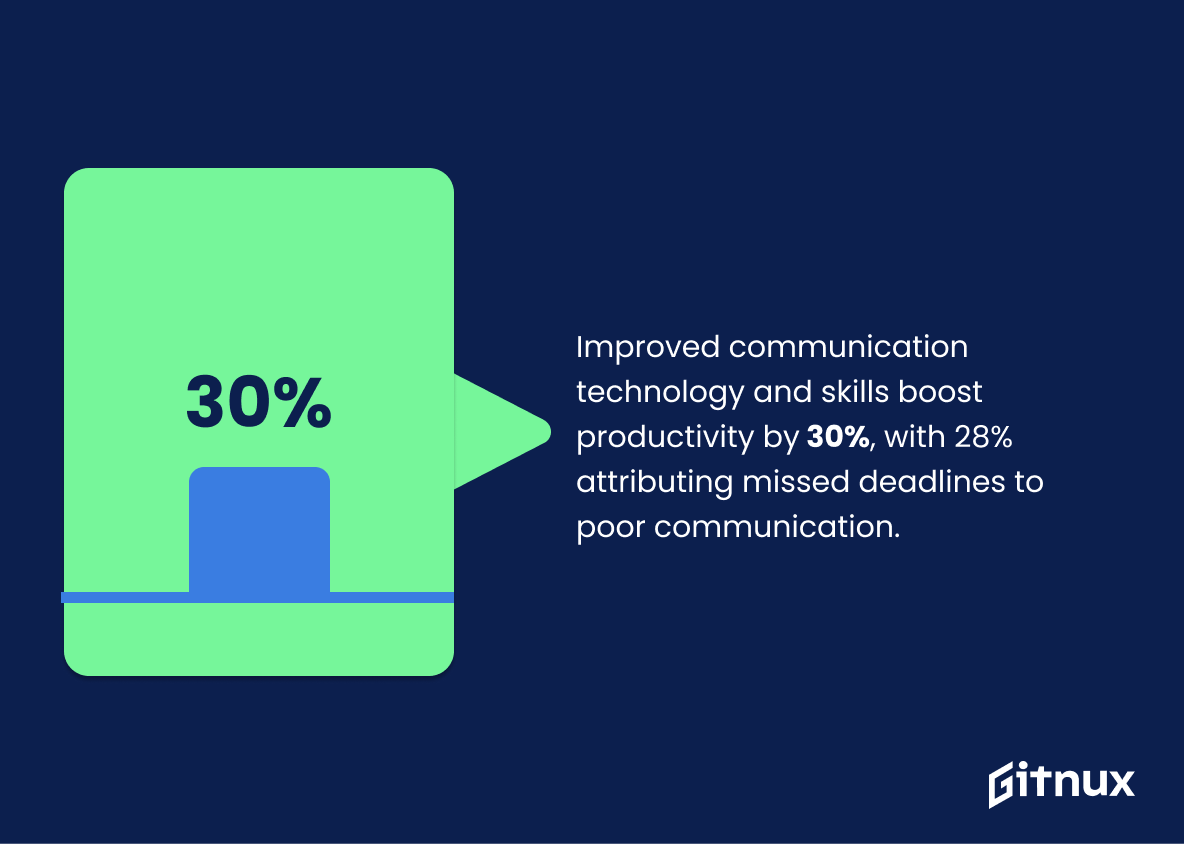Communication skills are an important component of our lives, and understanding the statistics behind it can help us better understand how we communicate. The most recent communication skills statistics will be covered in this article, including information on how individuals communicate in the workplace, the most widely used forms of communication, and the benefits of communication in our daily lives.
We will also examine communication skills in remote work and how important developing these skills can be. We can communicate more effectively and efficiently if we comprehend the current trends in communication.
Communication Skills: The Most Important Statistics
Graduates with good communication abilities made $38,000 more annually on average than graduates with poor communication skills.
About 72% of employees feel that they are missing out on important information at work.
General communication skills statistics
86% of employees and executives cite a lack of collaboration or ineffective communication for workplace failures.
Teams who communicate effectively may increase their productivity by as much as 25%.
Communication is a crucial part of any business environment because it facilitates the flow of information, about 75% of employers rate teamwork and collaboration as very important.
In a survey of 200 organizations, companies with extremely effective communication procedures had a 47% greater overall return to shareholders over the last five years than companies with poor communication.
According to a study conducted by Pearson and the Association of American Colleges and Universities, 91% of the employers polled felt that communication skills were crucial when making hiring decisions.
In a survey of 400 managers by the AMA Enterprise, managers spent an average of 18 hours per week on communication-related activities.
According to a survey by the Graduate Management Admission Council, 86% of employers prefer job applicants with great communication skills, and 83% responded that communication skills are a key consideration when employing new employees.
Communication skills statistics in the workplace
According to the result of a survey on important duties in communications management in Finland in 2017, 50% of the respondents mentioned that it is important that employees use effective communication skills to be able to interact within different departments.
28% of communications experts wish to improve their ability to measure and monitor their area of specialization.
A study found that a lack of communication costs businesses an average of $420,000 per year.
In a survey of 500 employees conducted by Dynamic Signal, 25% of participants claimed that poor communication had prevented them from having a thorough understanding of the objectives of their organization.
Communication skills statistics in remote work
In a survey of remote workers by Buffer, 20% of respondents cited communication as the biggest challenge of remote work.
Working remotely has contributed to the evolution of communication skills within organizations.
Polish employees had to develop communications platforms to transition into the new world of work.
However, this transition caused a decline in personal relationships, which led to online team-building
organized by 47% of companies in Poland in order to maintain good communication skills within the organization.
In a survey of remote workers, 29% of respondents cited communication skills as the biggest challenge of remote work.
According to a survey of 1,200 remote workers, 36% of respondents said that miscommunication was a challenge in remote work.
What is the importance of developing communication skills?
About 72% of employees feel that they are missing out on important information at work.
More than 80% of Americans believe that effective employee communication is crucial to building trust with their employers.
Companies lose on average $62.4 million per year because of inadequate communication to and between employees.
41% of leaders are not able to gather appropriate information quickly. Hence 40% are not able to make quick and deliberate decisions.
Organizations with effective communication strategies were 3.5 times more likely to outperform their peers. 97 % of employees also believe that communication has an impact on their task efficacy.
How to improve communication skills
According to one study, nonverbal cues made up 55% of the audience’s impression of the presenter. This indicates that the majority of your messages are sent through nonverbal cues rather than words.
In a study by McKinsey, executives reported that active listening was the most important communication skill.
According to research, 7% of communication takes place verbally, 55% via body language, and 38% via tone and inflection.
In a study, 94% of business professionals reported that video conferencing increases productivity.
Benefits of communication skills in the workplace
A study has proven that employees offered better communication technology and skills, increase productivity by up to 30% and 28% of employees cite poor communication as the reason for not being able to deliver on due time.
Effective communication with customers can lead to higher customer satisfaction and loyalty.
In a fierce conversations survey, 70% of participants agreed that better communication would enhance their relationships with coworkers.
Teams that communicate well are better able to recognize problems and find solutions. In a poll conducted by Interact, 91% of employees claimed that poor communication resulted in errors, while 38% claimed that poor communication resulted in failed projects.
A study found that graduates with good communication abilities made $38,000 more annually on average than graduates with poor communication skills.
Conclusion
Strong communication skills are critical for job success, and studies indicate that businesses are increasingly looking for employees with great communication skills.
Businesses are devoting more funds to training and development initiatives to assist employees in developing their communication skills, and the consequences are obvious: improved communication results in better performance, greater engagement, and higher productivity. Employees can improve their communication skills and aid in the objectives of their organizations with the correct training.
Resources
Proofhub: “9 Effective Communication Strategies to Connect Better with Your Team”, cited February 2023. (Source)
Pumble: “Workplace communication statistics”, cited February 2023. (Source)
Statista: “Survey on important skills to develop in the Communications industry”, cited February 2023. (Source)
Statista: “Survey on important duties in communications management”, cited February 2023. (Source)
Haiilo: “Top 5 Communication skills and how to improve them”, cited February 2023. (Source)
LinkedIn: “Statistics on why effective communication is important in the workplace”, cited February 2023. (Source)
Entrepreneur: “14 Proven Ways to Improve Your Communication Skills”, cited February 2023. (Source)
Connected Speech Pathology: “How to Improve Communication Skills: 11 Tips for 2023”, cited February 2023. (Source)
ExpertMarket: “The Importance of Effective Workplace Communication – Statistics”, cited February 2023. (Source)
McKinsey: “The executive’s guide to better listening”, cited February 2023. (Source)
GMAC: “What Employers Are Looking for in 2017 Business School Hires”, cited February 2023. (Source)
Bizcommunity: “Towers Watson research study on effective communication and ROI”, cited February 2023. (Source)
Pearson: “Skills for today: What we know about teaching and accessing communication”, cited February 2023. (Source)
AMA: “Improving Your Communication Skills: AMA’s Essential Guide For Business Leaders”, cited February 2023. (Source)
DynamicSignal: “Dynamic Signal Report: The State of Workplace Communications is Disconnected”, cited February 2023. (Source)
Buffer: “Everything We Know About Remote Work”, cited February 2023. (Source)
ZipDo, cited June 2023: Communication Skills Statistics









